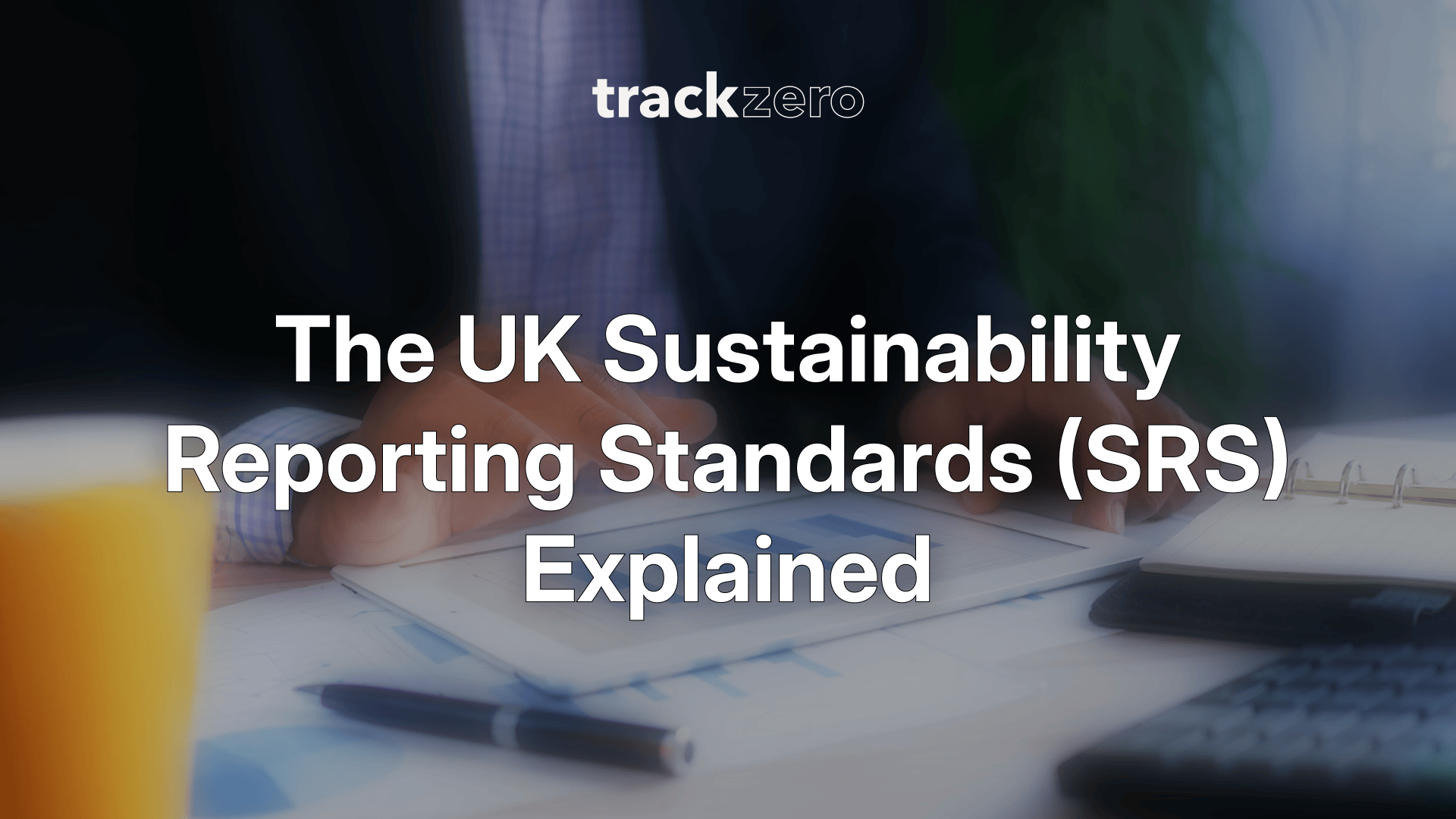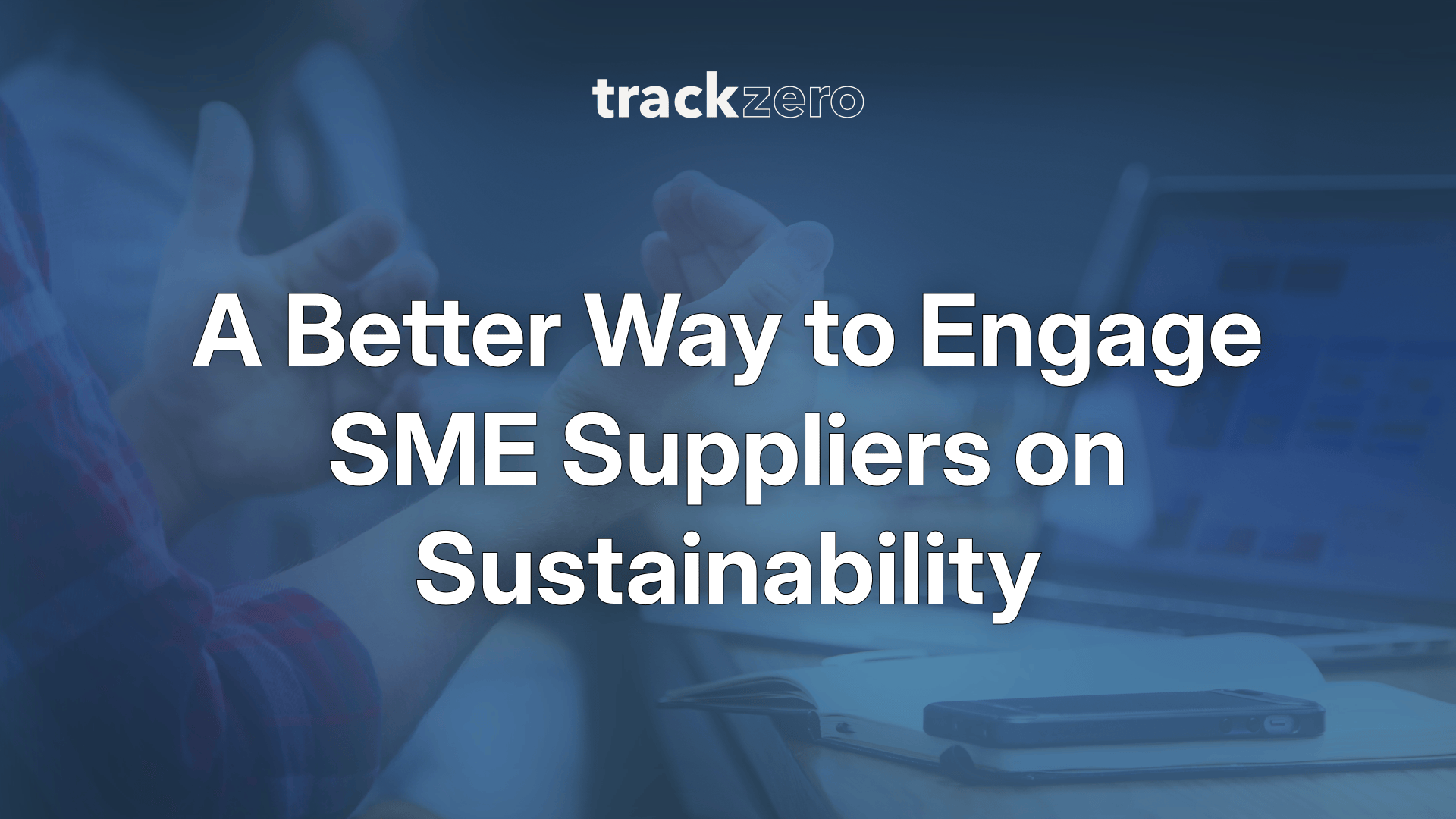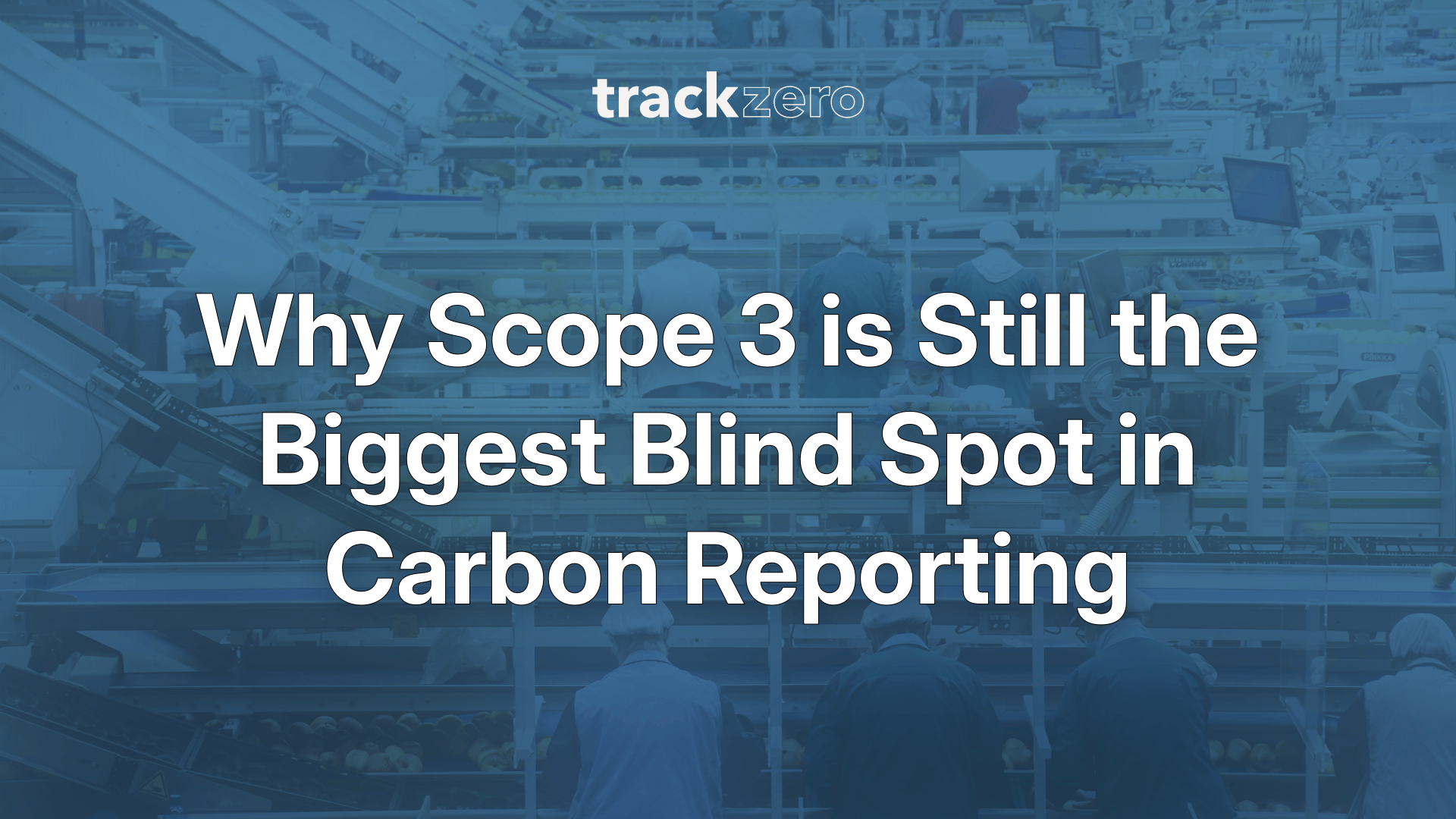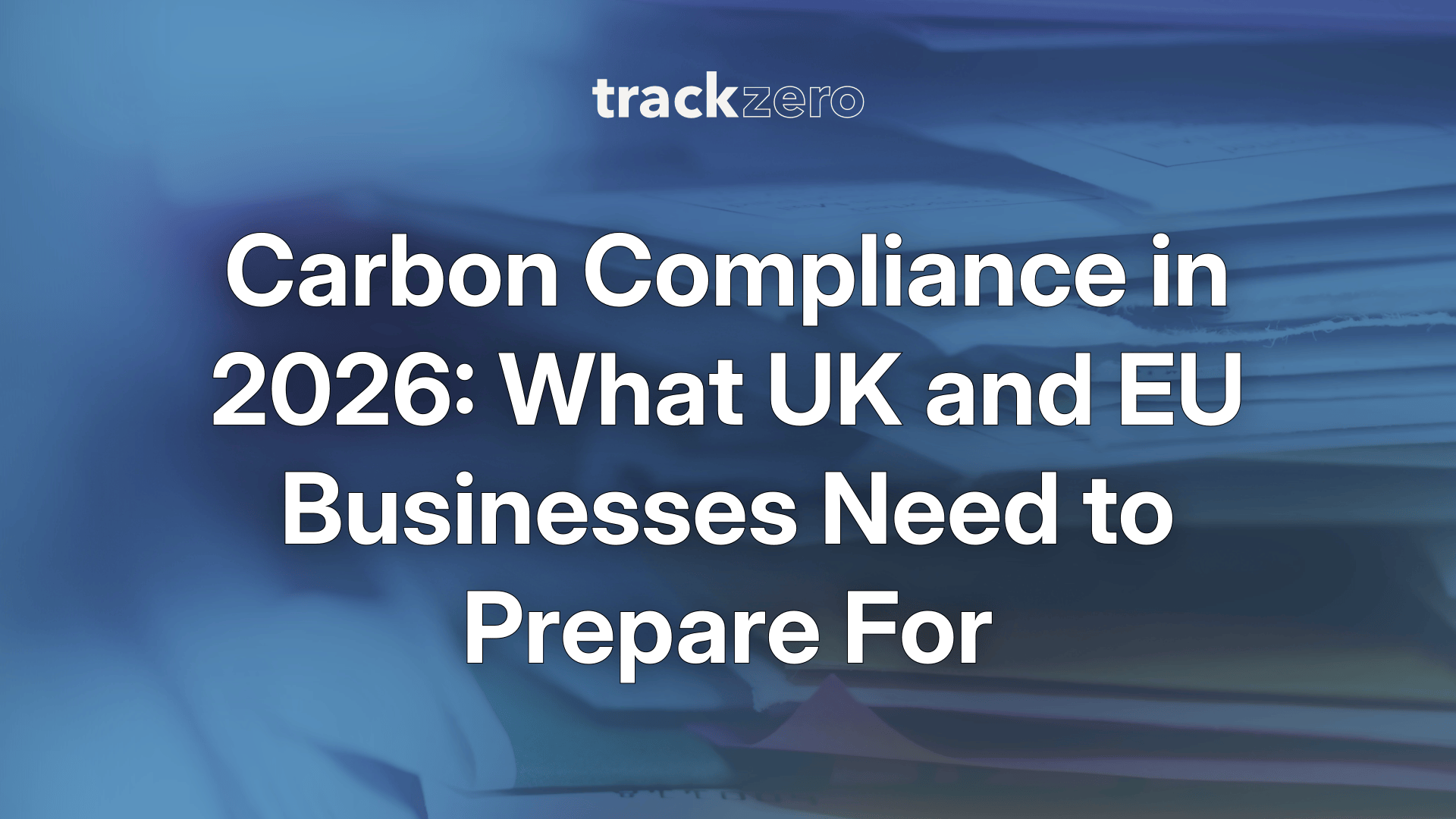The UK is making big moves in sustainability and if you've been hearing more chatter about the UK Sustainability Reporting Standards (SRS) lately, you're not alone.
These new draft standards are at the heart of a consultation that could reshape how businesses across the country report on financials and sustainability. Whether you work directly in sustainability, or in finance, risk, strategy... (dare we say, anything!), its important for you to be aware. So, what's all the buzz about?
Here's everything you need to know!
What's Actually in the UK SRS?
The UK Sustainability Reporting Standards are the UK government's proposed framework for sustainability-related disclosures. They're designed to ensure companies provide consistent, reliable information on the risks and opportunities they face, starting with climate. They are based on the standards published by the International Sustainability Standards Board (ISSB). The UK government proposes adopting the first two ISSB standards, with a few UK-specific tweaks:
- UK SRS S1: General requirements for reporting on any sustainability-related financial risks and opportunities
- UK SRS S2: Specific requirements for climate-related disclosures (based on TCFD).
We'll go into these in more detail shortly.
Why now?
The UK economy needs to attract over £130 billion per year in low-carbon investment to meet net zero goals. But to unlock that finance, investors need trusted, consistent data on sustainability-related risks.
The UK SRS aims to provide that, by:
- Aligning with global standards
- Improving the quality of sustainability data
- Supporting capital allocation to future-ready businesses
What does it mean for businesses?
The standards are currently voluntary, but planned for publication from autumn 2025. The UK government has accepted 6 amendments to S1 and S2, and they are currently up for consultation until 17th of September 2025.
Let's get into the substance.
The UK SRS S1 and S2 require companies to disclose material sustainability-related risks and opportunities, but only those that could reasonably be expected to affect financial performance in the short, medium or long term.
The disclosures are structured four pillars:
1. Governance
How the board and management oversee sustainability-related risks and opportunities.
2. Strategy
The sustainability risks and opportunities the organisation faces, and how these could affect its strategy and financial planning.
3. Risk Management
How sustainability-related risks are identified, assessed and managed.
4. Metrics and Targets
The KPIs and goals the organisation uses to track progress, including:
- Scope 1, 2, and (eventually) Scope 3 greenhouse gas emissions
- Climate targets and transition plans
- Use of carbon credits (if applicable)
- Industry-specific disclosures (optional guidance)
Additionally:
- Under UK SRS S1, companies must also disclose sustainability-related topics beyond climate if material (e.g. biodiversity, water, social risks) though the climate-first transition relief allows a phased approach.
- Entities are expected to provide disclosures for their entire value chain, not just their own operations.
The disclosures must be:
- Connected to the financial statements
- Provided in the same reporting period as financial disclosures
- Assurable (i.e. based on verifiable data and assumptions)
In short: UK SRS is designed to make sustainability data decision-useful for investors, just like financial statements.
Now what?
The SRS isn't just a reporting shift. It shows the importance that sustainability and climate is growing within business. While it may be voluntary now, we highly recommend getting started and getting ahead to avoid last-minute costs, stress, and resource strain down the line.
Here's how to get ahead:
1. Review your data readiness
What sustainability data are you already collecting? What's missing? And do you have the right tools or people to gather and manage it?
2. Start tracking your carbon emissions
Affordable, user-friendly platforms like TrackZero help businesses of all sizes measure, reduce, and report emissions — and engage suppliers in the process.
Because when it comes to sustainability reporting, data is your foundation. It's the first step toward understanding your impact, building trust, and making better decisions.
Get started today 💪




